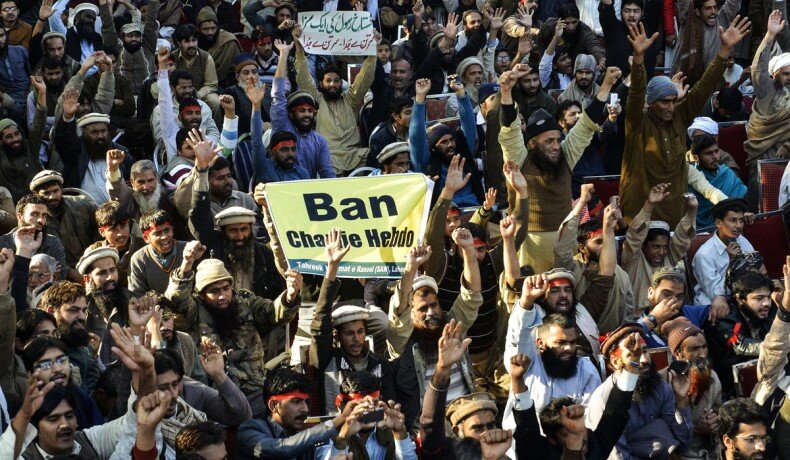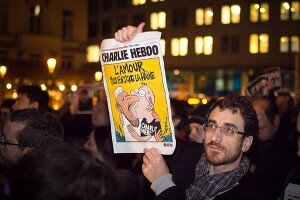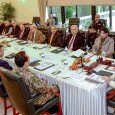By Rasul Bakhsh Rais –
Muslim societies from Morocco to Malaysia are becoming more sensitive to the identity, finding accommodation between liberal ideas of globalised world and their intellectual, cultural and religious heritage difficult
The massacre of twelve staffers that included the some of the best cartoonists of Charlie Hebdo, a humour magazine on January 7 was shocking, tragic and one of the worst in modern history of journalism. The journalist, writers and artists lost their lives for what is celebrated in the western worlds as free artistic expression. The western world has gradually accepted secular beliefs and separation of religion from the public sphere governed by the state. Religion in any form is a private, personal idea and an absolute individual choice—whether to have one or have none. It has taken centuries of social, cultural and political battles to reach a grand accommodation of two very distinction spheres of life—temporal and religious.
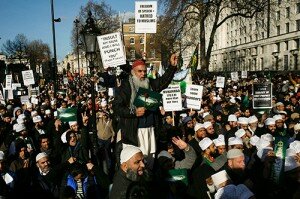 The rise and broader acceptance of secular ideas and values has neither ended religiosity nor religion, although sharper divorce of individual from religious beliefs has markedly increased in some of the Western societies. Along with secularism, the Western world greatly values freedom of thought and expression that has emerged as the hallmark of Western civilisation. The development of science and technology to modern arts, literature, philosophies and continual debate on what is good for the society in material or spiritual sense is a logical consequence of human liberation freedoms. Nobody with a sense of history and understanding of evolution of human societies would deny it; rather the urge for liberation of mind, spirit and thoughts is universal. Actually, the right to religion was one of the first freedoms thought individual in the Western world struggled for and won, which actually meant that he had right to believe in any form of religion, or have no religion at all—a persona choice.
The rise and broader acceptance of secular ideas and values has neither ended religiosity nor religion, although sharper divorce of individual from religious beliefs has markedly increased in some of the Western societies. Along with secularism, the Western world greatly values freedom of thought and expression that has emerged as the hallmark of Western civilisation. The development of science and technology to modern arts, literature, philosophies and continual debate on what is good for the society in material or spiritual sense is a logical consequence of human liberation freedoms. Nobody with a sense of history and understanding of evolution of human societies would deny it; rather the urge for liberation of mind, spirit and thoughts is universal. Actually, the right to religion was one of the first freedoms thought individual in the Western world struggled for and won, which actually meant that he had right to believe in any form of religion, or have no religion at all—a persona choice.
The question is, are there any checks on the freedom of expression? This has been one of the fiercely debated questions in the cultural and intellectual battles, often spilling over to the political sphere in the Western world. There are two sets of constraints on freedom of expression, depending on where you happen to be and in which age and time you have lived, because the meanings and understanding of free speech and constraints on it vary so greatly. Paris where this tragedy occurred is one the intellectual and cultural powerhouses of the Western world. The free intellectual thought has its roots in the American (1776) and French (1789-1799) revolutions. They occurred in a climate of social and political disruptions.
The ideas of that age were powerful and have gripped the mind of modern man since then. For instance, the American Declaration of Independence starting with “life, liberty and pursuit of happiness” and the popular slogan in the French revolution “liberty, equality and fraternity” have continued define the social, cultural, intellectual and political evolution of Western person and his society. These ideas have become rather universally accepted and now a part of human intellectual heritage.
“Paris where this tragedy occurred is one the intellectual and cultural powerhouses of the Western world. The free intellectual thought has its roots in the American (1776) and French (1789-1799) revolutions”
The constraints on freedom of expression referred above are based on two equally powerful ideas. The legal constraints means that the repute, honour and worth of an individual is not attacked and soiled by any “free” expression. Persons, under laws in Western societies can be held accountable for any unfounded allegations or damaging the repute of another person or entity. Courts would ultimately decide the guilt or innocence, punishment or acquittal. There is a legal, institutional recourse to justice.
The moral constraints are self-imposed by a person when he or she thinks of the larger good of the society, its order, popular emotions and sentiments. This is a self-imposed limitation—an individual choice of a writer, artist and author. Ethical choices are not and cannot hold the force of law or enforced from outside. They are internal to the individual.
It is this limit, in my view that the Charlie Hebdo magazine and its editors in carrying the caricature of Prophet Muhammad (SAW) were careless about. They ignored the fanatical reaction from the rising extremist fringe in their own society, which can be and has been celebrated as courage, free speech, and liberal artistic expression. However, in the backdrop of many episodes of ensuing violence in similar cases, they must have added some layers of security to their persons.
One of the pretty known negative fallout of freedom of expression, when the subject is the most revered Muslim sacred personage of the Prophet, is popular outrage. Muslim societies from Morocco to Malaysia are becoming more sensitive to the identity, finding accommodation between liberal ideas of globalised world and their intellectual, cultural and religious heritage difficult. The radical elements have increasingly captured bigger space in many of the Muslim societies.
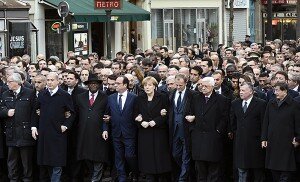 The real effect of the Charlie Hebdo tragic incident is not that the free speech or free artistic expression has suffered, it is that it has breathed new life and spirit to the clash of ideas that the Western world holds so dear and the popular politics and street in the Muslim world. It is not the clashing civilizations, as they even very distinctive boundaries contribute to each other, but clashing ideas that shape conflicts.
The real effect of the Charlie Hebdo tragic incident is not that the free speech or free artistic expression has suffered, it is that it has breathed new life and spirit to the clash of ideas that the Western world holds so dear and the popular politics and street in the Muslim world. It is not the clashing civilizations, as they even very distinctive boundaries contribute to each other, but clashing ideas that shape conflicts.
This tragedy has happened at a time when modernist sections of the Muslim societies and the statesmen—a dying breed—in the Western world would like to see the emerging gulf between the two filled with common strands of thoughts and common good. The really challenge is how we can avoid such clashes in future and build a common human future that celebrates freedom of expression with a due and proper respect for sacred symbols of religions. It is only through some synergy and collective efforts that we can frustrate the work of the narrow-minded, extremists and ideological warriors both in the West and in the Muslim societies that would cherish the idea of clash of civilisations.
![]() The writer is a prominent political analyst and teaches at LUMS
The writer is a prominent political analyst and teaches at LUMS





















































































